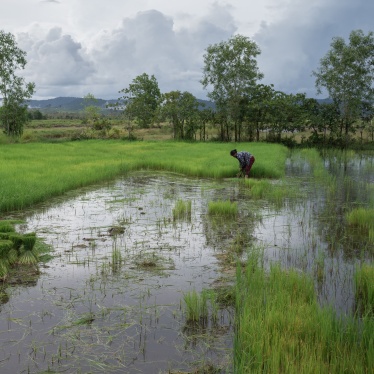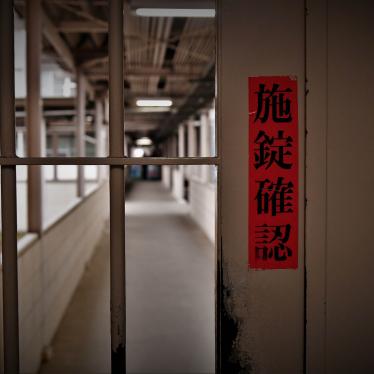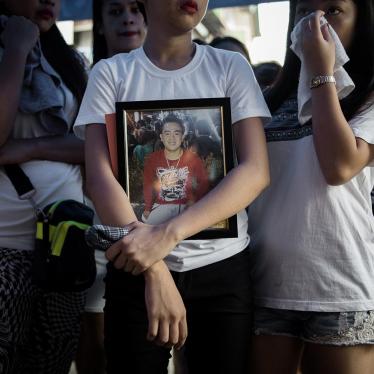Mr. Taro Kono, Minister of Foreign Affairs of Japan
Mr. Shinichi Kitaoka, President of Japan International Cooperation Agency
The general elections in Cambodia, where 25 years has passed since the election under the United Nations Transitional Authority in Cambodia (UNTAC), is scheduled to be held this year in July. Prime Minister Hun Sen has increasingly repressed opposition parties, independent media, and civic groups, to ensure that the dominant ruling Cambodian People’s Party (CPP) will not lose their majority in the elections.
Last September, Kem Sokha, the leader of the main opposition party, the Cambodia National Rescue Party (CNRP), was arrested on charges of treason. Moreover, the Supreme Court ordered the dissolution of the CNRP last November. The CNRP won 44.5% of all votes in the 2013 general elections and 43.8% in the 2017 local elections. The last local elections retained a measure of credibility with international support, including that of the Japanese government. It is becoming increasingly apparent that the ruling party is obstructing election campaigns of candidates from non-CPP small parties.
The Cambodia Daily, one of the main newspaper companies in the country, was forced to shut down its publication when the government demanded an incomprehensible tax payment. The authorities have closed independent local radio stations and prohibited others from carrying Radio Free Asia and Voice of America in Khmer. Two journalists have been detained and prosecuted on baseless charges of spying. In case of one human rights NGO, the Cambodian Human Rights and Development Association (ADHOC), the authorities regarded general activities to protect human rights as illegal. Five members of that organization were arrested, charged falsely with bribing a witness, and detained for more than one year. Restrictions on freedom of speech by the authorities as well as threatening actions by the judiciary, in violation of the constitution and international law, prevail in the country, for instance: the case of environmentalists who pointed out an illegal development program but were detained soon after, or the case of a woman activist leader who was carrying out a non-violent protest, and ultimately received a prison sentences for another charge.
The European Union (EU), along with Japan, has been supporting elections in Cambodia, but in response to the dissolution of CNRP, it has terminated its support last December (reference1). The US government has also suspended its election support last November, asserting that there are no signs of legitimacy, freedom, and impartiality in the next election (reference2). It is reported that both EU and US government are currently considering additional sanctions.
However, the Japanese government has, unfortunately, expressed its position to continue its support for the election process. Moreover, in February this year, the Japanese government announced it will provide ballot boxes for the general elections through its grant aid scheme.
Both the government of Japan, as well as the Japanese private sector, have cooperated with the peace-making process and the building of a democratic state in Cambodia despite bearing human cost. The total government expenditure on this effort exceeds 350 billion yen. Despite the increasing influence of the Chinese government, Japan continues to be a significant source of aid for Cambodia.
The Japanese Development Cooperation Charter clearly expresses that “Japan will provide assistance so as to share universal values such as freedom, democracy, respect for basic human rights and the rule of law as well as to realize a peaceful, stable and secure society” under the section regarding the sharing of universal values and the realization of a peaceful and secure society. It also states that “[t]he establishment of the rule of law, the realization of good governance, the promotion and consolidation of democratization, and respect for basic human rights including women's rights constitute the basis for effective, efficient and stable economic and social activities and thereby support social and economic development. They also hold the key to realizing an equitable and inclusive society including reducing disparities” as a particularly important policy.
If the Japanese government continues its support for the upcoming elections, it would be legitimizing the ruling party’s abusive elimination of the political opposition and its undemocratic conditions. Going against the principles of the very policy charter it introduced can also undermine the credibility of Japan in the international community.
Considering these details, we, as Japanese citizens, strongly ask the Japanese government to take these two actions with respect to Cambodia:
- Issue a public statement that the current election process cannot be classified as one that is legitimate or respects freedom and impartiality.
- Immediately cease aid for the 2018 general elections; only resume electoral support once all of the parties that were banned or obstructed are able to continue their political activities and freedom and impartiality are ensured in the election process.
We ask for a swift and speedy reaction on your behalf.
Reference
- European Union. Press Statement (on 12 December 2017)
- THE WHITE HOUSE, Office of the Press Secretary. Statement by the Press Secretary on Setbacks to Democracy in Cambodia. (on November 16, 2017)
- Human Rights Watch “ Cambodia: Supreme Court Dissolves Democracy” November 17, 2017 (https://www.hrw.org/news/2017/11/17/cambodia-supreme-court-dissolves-democracy)
- Human Rights Now “Cambodia: HRN urges the Cambodia government to immediately end its campaign of suppression” January 31, 2018 (http://hrn.or.jp/eng/news/2018/02/05/statement-cambodia-suppression/)
Organization name
Japanese Civil Society Campaign for free and fair elections in Cambodia
Human Rights Now
Human Rights Watch
ayus:Network of Buddhists Volunteers on International Cooperation
4 other organizations






